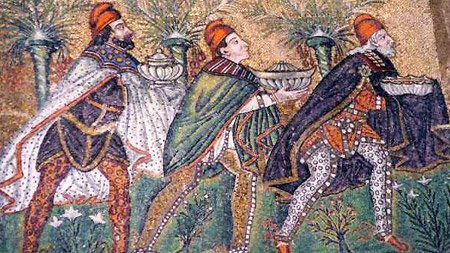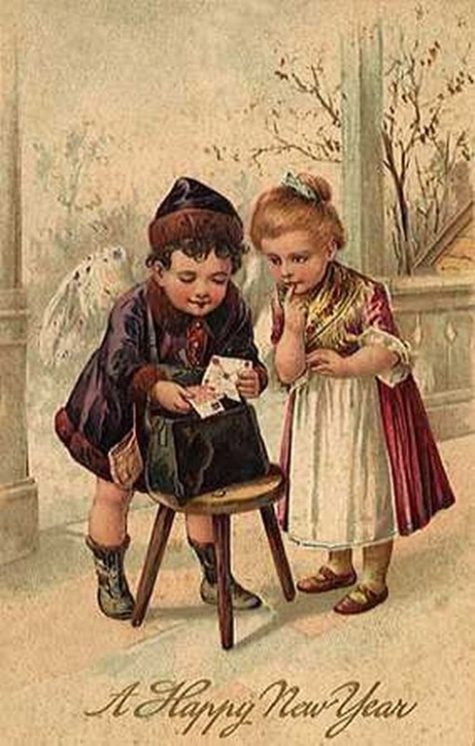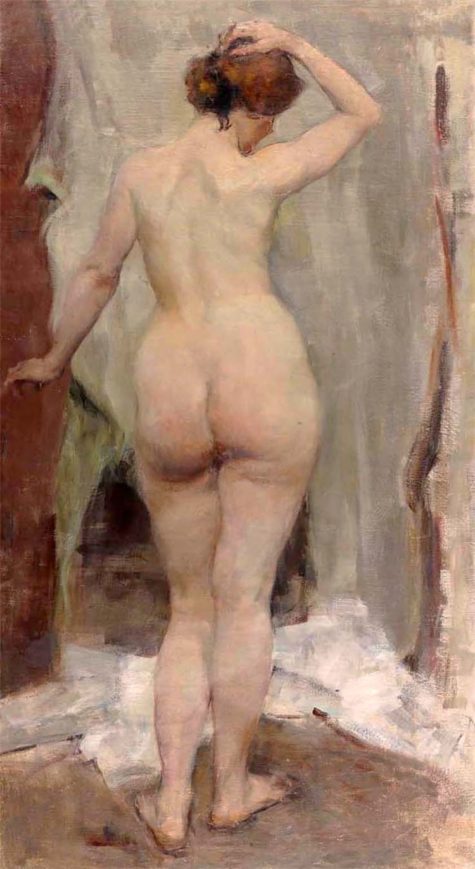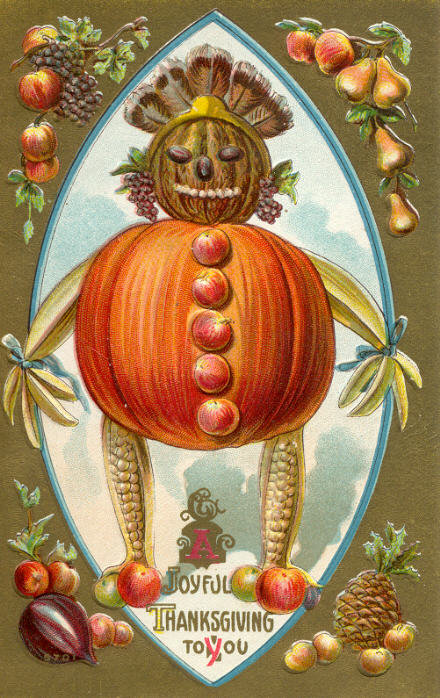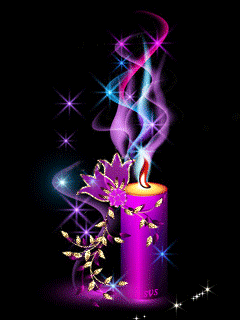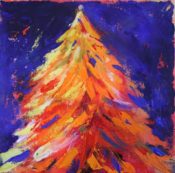Seasonal Divinations
Divination Pudding
Here’s something really fun. It’s a Divination Pudding, traditionally served at Yule or New Year’s celebrations.
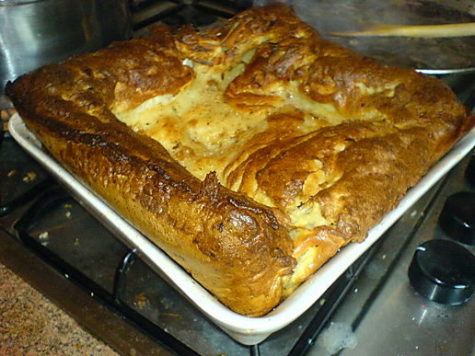
This is not a creamy milk-based dessert pudding; instead, this is a traditional English dinner pudding. You’ll need about a loaf of stale bread, three eggs, a half cup of heavy cream, a quarter cup of brown sugar, and spices such as cinnamon, ground cloves, ground nutmeg, allspice, mace, and ginger. Pick two spices, and use no more than a quarter teaspoon of each.
You will also need some trinkets such as small toy cars, rings, large coins like half-dollars, or other prizes. They will be baked into the pudding, so use common sense when picking the objects.
Grease a quart baking dish. Tear the bread into small pieces. Beat the eggs until stiff. Fold in the heavy cream and add the sugar and spices. Place the bread into the baking dish, pour the wet mixture over it.
Now comes the fun part. Hide the prizes in the pudding. Push them down into the gooey bread, then cover them over. Bake your pudding in the oven for about 20 minutes at 400 degrees Fahrenheit, checking it frequently. The top should be golden brown and an inserted toothpick should come out clean. Serve hot, with butter and whipped cream.
Caution: WARN your guests about the prizes, so that nobody chokes on them! You might want to make a separate pudding for toddlers, or use prizes that aren’t small enough to swallow. The coins represent money, the cars mean a journey, and the rings signify love.
Source: Llewellyn Journal
Divination Ritual For Lady Luck Day
April 5 is Lady Luck Day. It is dedicated to Fortuna, the Roman goddess of good fortune. Here is a nice divination ritual that makes for a fun get together.
- Color: Purple
- Element: Air
- Altar: Upon a purple cloth lay nine purple candles, a great cup of wine, the figure of a ship, deck of Tarot or other divinatory cards, and the figure of a Wheel of Fortune.
- Offerings: Take a chance.
- Daily Meal: Potluck, with everyone contributing one dish, which is not discussed beforehand.
Fortuna Invocation
Lady of the whirling wheel
That throws some up and flings some down;
Lady who both wounds and heals,
Lady who spins us round and round,
We beg you, Fortuna, for your bounty,
And pray you will not cast us aside,
For we cannot let go of your magnificent wheel,
But we all must hang on for the ride.
Maker of chances and opportunity,
Tradition says you are bald behind,
That seizing you by the oncoming forelock
And hoping that you will be kind
Is the only way to win your favor,
But we know what they do not.
You are never kind, yet many times
You will give the slow ones a second shot.
Stormy lady, sailor’s mistress,
Tormentor of the ship at sea,
You come to us like a gypsy’s laughter
And leave us almost silently.
We spin the wheel, we roll the dice,
We patch our wounds across the rift,
We call for you once, we weep for you twice,
We honor you and your ambivalent gift.
(Each comes forth and draws a card; it is a message from Fortuna. Unlike other divination sessions, on this day each must reveal to the others what card was received, and it can be discussed among the participants. Such is luck.)
Found in: Pagan Book of Hours
Weather Divinations for Imbolc
Imbolc (Feb 2) was traditionally a time of weather divination, and the old tradition of watching to see if serpents or badgers came from their winter dens may be a forerunner to the North American Groundhog Day. A Scottish Gaelic proverb about the day is:
Thig an nathair as an toll
Là donn Brìde,
Ged robh trì troighean dhen t-sneachd
Air leac an làir.
“The serpent will come from the hole
On the brown Day of Bríde,
Though there should be three feet of snow
On the flat surface of the ground.”
Imbolc was believed to be the day the Cailleach — the hag of Gaelic tradition — gathers her firewood for the rest of the winter. Legend has it that if she wishes to make the winter last a good while longer, she will make sure the weather on Imbolc is bright and sunny, so she can gather plenty of firewood. Therefore, people would be relieved if Imbolc is a day of foul weather, as it means the Cailleach is asleep and winter is almost over and spring is on it’s way. Read more here: Là Fhèill Brìghde.
Other weather divinations include:
- “Red sky at night, sailor’s delight; red sky at morning, sailor take warning”. This weather rhyme is a quick way to remember that dry particles in the air causes the sky to look red. Dry air in the west (the night sky), the weather will be dry. If the sky is red in the east (morning sky), wet weather is headed your way.
- “Circle round the moon, rain or snow soon.” A “circle” around the moon indicates moisture in the air, bringing precipitation.
- Catch the cat cleaning it’s ear’s on Imbolc? Tradition says that this means a storm is coming.
- Check out the pine cones. If they are closed, it means wet weather is on it’s way. Open cones predict dry weather.
Crickets have been shown to be very good indicators of air temperature. Count the number of chips a cricket makes for 14 seconds. Add 40 and the sum of the two numbers will equal the temperature to within 1 degree 75% of the time.
From: Wikipedia and Examiner.com
Epiphany and Twelfth Night Divinations
Epiphany or Twelfth Night falls on the 12th day of Christmas, Jan 5. Here are some old divinations and predictions for this night.
If a Danish girl wishes to see her future husband, she must repeat the following verse before going to bed on the eve of Epiphany: “Ye three holy kings to you I pray, That ye to-night will let me see, Whose cloth I shall spread, Whose bed I shall make, Whose name I shall bear, Whose bride I shall be.”
Here are some more:
- Whatever is dreamed during the twelfths will come to pass in the twelve months of the year.
- Those who wear linen made from yarn spun during the twelfths will be devoured by wolves.
- On twelfth-night in Scotland a board is covered with cow’s dung, candles set in it, and sprinkled with ash to make them light easily. They are then lighted, each being named for someone present, and as each dies, so will the life of the owner.
- The twelve days after Christmas make the almanac for the year.
- Tis thus believed in Trinity Bay, New Bedford, Mass., and Nova Scotia. In Nova Scotia it is said that the first seven days of January foretell the first seven months of the year.
New Years Divinations
Some Albanian tribes celebrate their New Year on the first of September, and everything that happens during the day, presages the happenings of the months of the year, as to whether they will be lucky or not.
On New Year’s day dip your thumb seven times in salt and put in your mouth all that rests on the nail. You will dream that your future husband or wife will bring you water. (Persia.)
On New Year’s night, it was an old Welsh custom with the wise and courageous old men of the parish to sit up all night in the church porch. On that night, it was said, a voice, emanating from beneath the altar table, pronounced the names of those who should die within the coming year.
If a woman dies first in the year, then the greatest mortality during the year will be amongst women; and vice versa if a man dies first. (Gloucestershire, England.)
On New Year’s eve, the Gurians in Russia place small pitchers of wine in each of the bed-rooms of the family; if in the morning the wine has increased, the harvest will be abundant; but if the wine is lessened, they will have bad luck that year.
During the time that the male Jews are at the synagogue on the night of the tenth of the month Tisri (Yorn Kippur, the day of atonement), the women light the candles and lamps at home, and according as the light burns prognosticate good or evil fortune.
If your first caller on New Year’s day is a male, you will have good luck and many friends; if a female, bad luck and few friends.
Turn your pillow at midnight of the thirty-first of December, and you will dream of the one you are to marry.
If the sun shines on New Year’s day, it is a sign that the flax will be straight.
He who steals on New Year’s, can steal safely for a year.
Every Chinaman must perform the extraordinary act of taking a bath on New Year’s day. To fail in this would be a bad sign.
The Chinese put potatoes in water on New Year’s eve and prognosticate their fortunes by the way they grow. If they are not thrifty they will meet with trouble during the year.
At midnight on New Year’s the Japanese build small fires on the floor of their houses and from the manner in which the flames arise, foretell what will be their luck during the coming year.
At Liege, Belgium, it is a bad sign if a little girl presents you the first wishes for a happy New Year, but lucky if it is a boy.
It is an old Dutch superstition that, if you want to marry the girl you love, your voice must be the first one she hears, and your face the first she sees, on New Year’s morning.
Venetians consider it very important to notice whom you meet the first thing on New Year’s day. If it is a man, you will have good luck, if a woman, bad luck; if a priest, you will die within the year; if a policeman, you will have litigation.
The first person of the opposite sex you meet on New Year’s day will bear the Christian name of your future partner.
If ice melts on the 1st of January, it will freeze the 1st of April.
In one part of modern Greece all in the house go out early on New Year’s morning each bearing a branch on which the leaves are well dried. These they cast on the open fire, each wishing at the same time good luck to the family. The greater the fire, the better the augury.
On New Year’s eve take your hymn-book to your bedroom, blow out the lamp, open your book and mark a hymn (in the dark), put it under your pillow, and sleep on it. Next morning read the hymn, and its text will indicate the events of the year.
Your conduct on New Year’s day is a forerunner of your conduct all the year.
It is said that whatever the experience of a person is on New Year’s day, so it will be all the year, either tears or smiles.
In Scotland, the first person who comes to the house on New Year’s day will govern the luck of the house for the year, and in this belief, the “first foot,” is carefully watched.
In Transylvania on New Year’s eve the young men of the family bind together as many wreathes as there are persons in the house and throw them over the roof. Those that fall indicate the ones who will die that year.
Lay a green ivy leaf in a dish on New Year’s night, cover it with water and set it in a safe place until the fifth day of the year. If the leaf is then still green and fair, you will be safe from any sickness all the year; but if you find black spots on it, you may expect sickness.
In Pomerania and also in this country, young ladies believe that if they rapped at a poultry-house door at midnight on New Year’s eve, and the cock cackled first, they would surely be married that year; but if the hen cackled first, they would remain maids.
“On New-Year’s Day
Take out and then take in,
Bad luck will begin:
Take in, then take out,
Good luck will come about.”
On New Year’s eve, if a person wishes to know his fate during the coming year, he must go into the open air with a psalm book in one hand, and a piece of silver in his mouth. He must allow the book to fall open, and if it opens at the death psalm he will die; if it opens at a bridal psalm, he will marry; and whatever else it opens to, will indicate his fate. (Sweden.)
A “plane-soled” or “flat-footed” person is considered in Scotland a sanctimonious person and unlucky to meet on New Year’s day; while a hearty, merry fellow is good luck. It is necessary for all to drink every drop in the glass presented, and eat all of the bread given on that day, for good fortune. If anything unusual takes place on that day, it is noted and talked of all the year, so important to the village fortunes are the events of New Year’s Day.
In Turkey, if a stranger visits you on New Year’s day he must go to the hen-house and place an egg under a hen. If she does her duty and sits upon it the stranger is auspicious and is feted. It is called “the lucky foot.”
“If New Year’s-eve night wind blow south.
It betokened warmth and growth,
If west much milk and fish in the sea,
If north much cold and storms there’d be,
If east the trees will bear much fruit
If north east Bee it, man and brute.”
On New Year’s eve the Italian maiden places in one corner of her bed room a thimble, in another water, in a third ashes, and in the fourth a ring. Upon waking in the morning if she sees the ring first, she will be married that year; if she sees the water first, the year will be unlucky; if the thimble, fortune will smile on her; if the ashes, she will die.
On New Year’s morning take the Bible, lay it upon the table, open it and place your finger on the page at random. The verse upon which your finger touches will give some idea as to your future for the coming year.
The first baking after New Year’s day, make as many little cakes as there are people in the house, give each a name, and pick a hole in it with your finger; if any one’s hole gets baked up, he or she will die.
“With business is the year auspiciously begun:
But every artist, soon as he has tried.
Works but a bit, then lays his work aside.”
As a weather guide the first day of the year is much regarded. East wind on New Year’s day forecasts a year of cattle plague. West, the death of kings. S. W. epidemics, North, fertility.
Source: Encyclopaedia of Superstitions, Folklore, and the Occult Sciences of the World
Twelve Days of January Weather
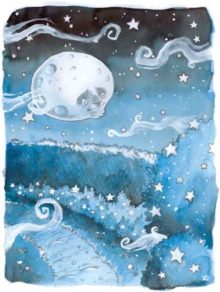 Whatever the weather is like the first twelve days of January indicates what the weather will be like for the next twelve months. Each day equals one month in succession.
Whatever the weather is like the first twelve days of January indicates what the weather will be like for the next twelve months. Each day equals one month in succession.
From Moon Magick
Russian Bath House Oracle
This Russian New Year’s Eve women’s divination ritual foretells the fortunes awaiting in the New Year. In the days before private bathrooms and indoor plumbing, the bathhouse was a place of social as well as hygienic significance. It is also often a place of great magical and spiritual significance. What is now only a “bathhouse” was once the home for spiritual, shamanic, and magic rites. Babies were born in the bathhouse, healings performed, men and women readied for marriage. Post Christianity, the bathhouse retained its power but also developed an aura of the forbidden.
In Russia, the bathhouse maintains a magical aura akin to a crossroads. The bathhouse is also the home of powerful spirits, ancient pagan deities now demoted to bathhouse guardians. Forgotten spirits tend to be grouchy spirits, although not always. This ritual takes place at midnight, ideally at midnight, the threshold of the New Year.
Taking turns, women remove their underwear and approach the bathhouse backwards, skirts lifted over their heads. The bathhouse door is left partially open. Each woman sticks her naked bottom through the door and waits.
If the resident spirit slaps or scratches her, this is not a good sign for the coming year. If, on the other hand, she receives a gentle and pleasurable caress, with hands rather than claws, her future shines bright, while a kiss is auspicious enough to go buy some lottery tickets.
Thanksgiving Divinations
There isn’t much to be found when it comes to omens, signs, and superstitions surrounding Thanksgiving. Here are a few tidbits from various sources:
- To entirely prepare a thanksgiving-dinner is a sign that you will have a house of your own before another Thanksgiving.
- Always be bright and cheerful on Thanksgiving day, no matter what your troubles are, and you will have cause to rejoice thrice before the year is out.
- If all the members of the family are not home at Thanksgiving, there will be one death in the family before the next Thanksgiving.
- Before putting the turkey in the oven, knock 3 times on a wooden board and the meat will taste succulent.
- If you eat a child’s turkey leftovers then it will make a boy naughty and a girl cry.
Pulling the wishbone:
Two people take hold of opposite ends of the turkey’s clavicle, known as the wishbone, and pull. The one who ends up with the biggest piece is given the chance to make a wish. As long as they don’t tell anyone else what the wish is, the wish is supposed to come true. If there are newlyweds at your Thanksgiving table, it is customary to give the wishbone to the new couple so that good luck will follow them throughout their marriage.
Debbie: Reading Candle Wax
Bridget Grimes: 310112_svyatki2_500
Mari: Reading Candle Wax
Ali: Notarikon
ALI: Notarikon


